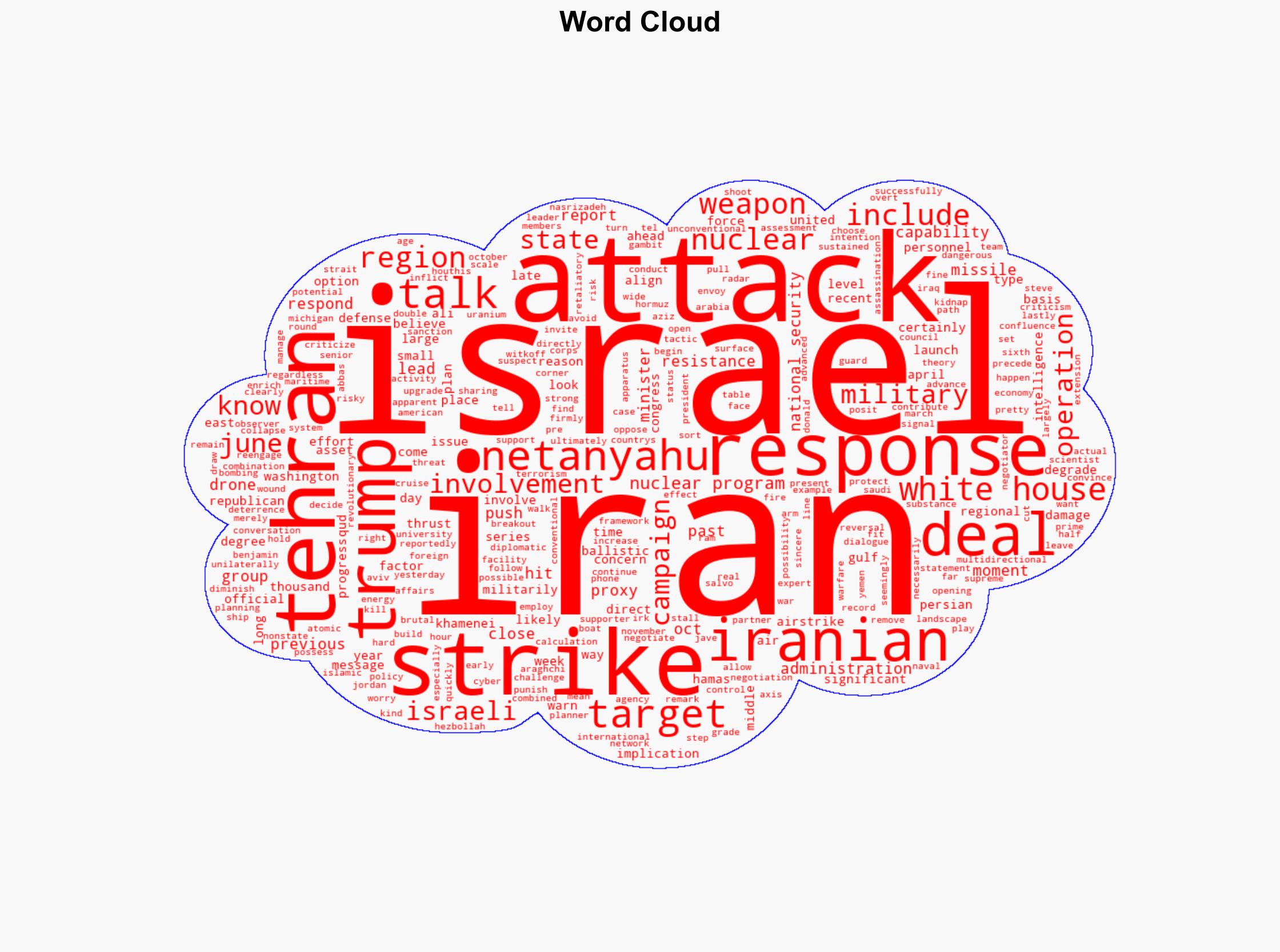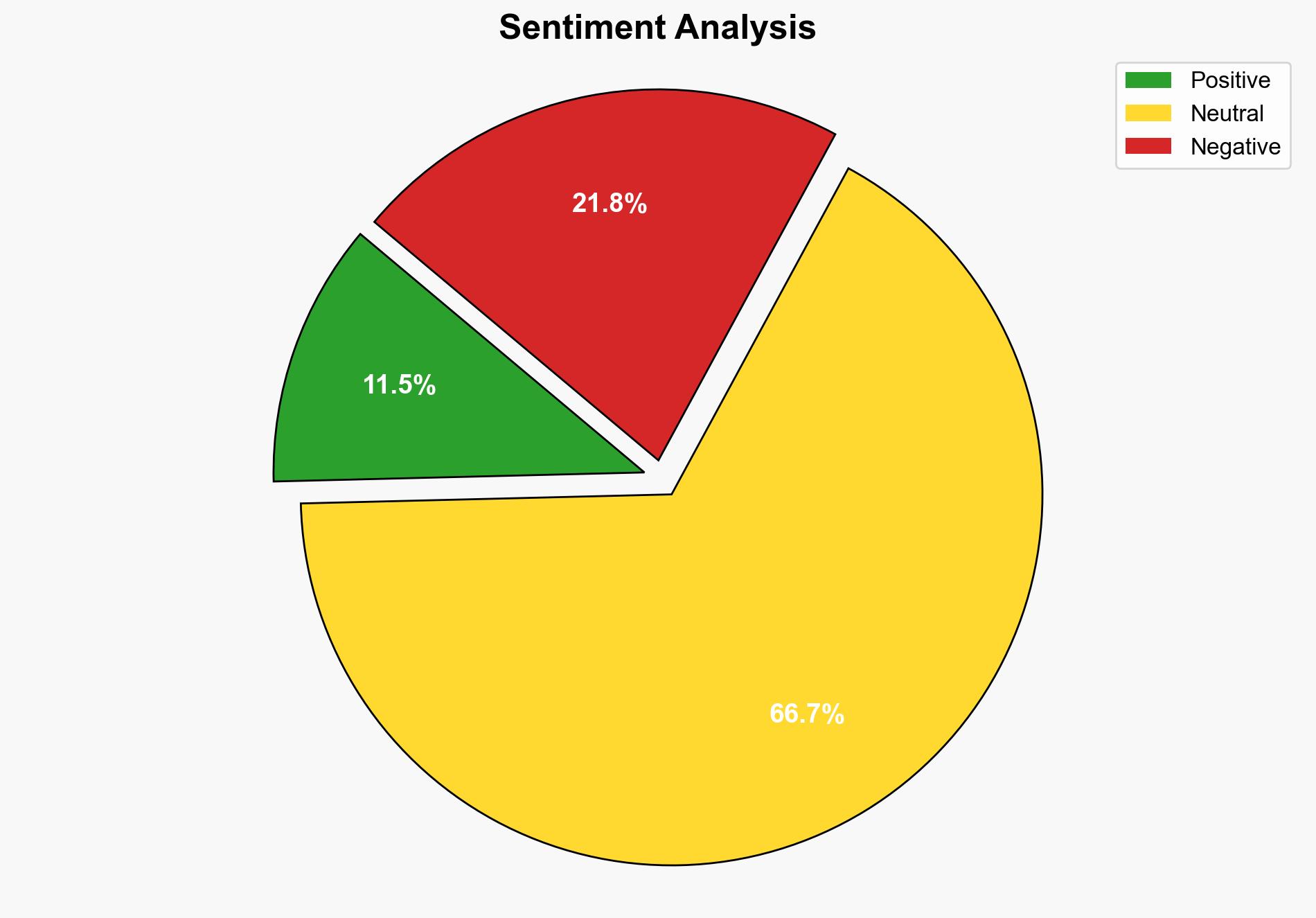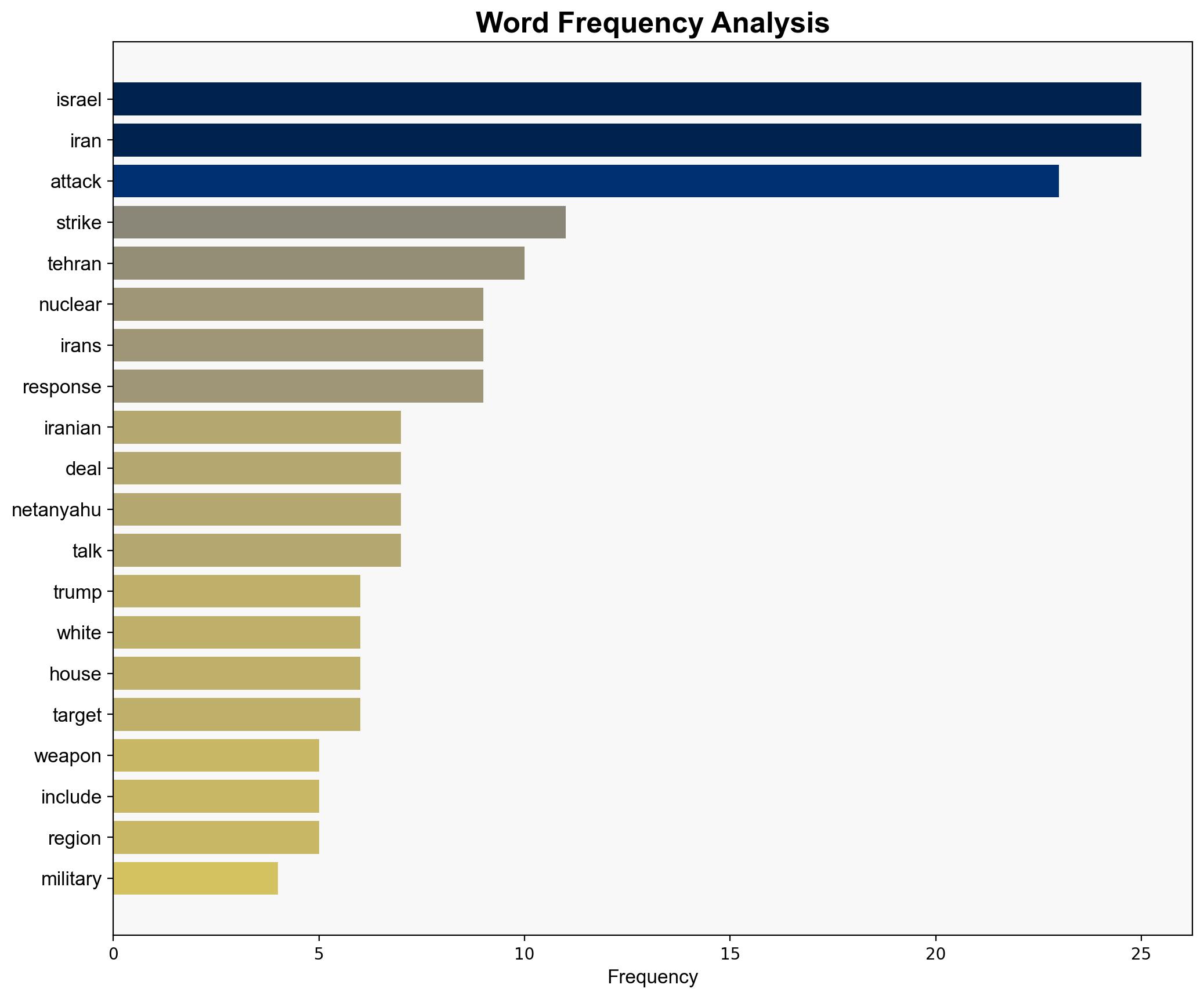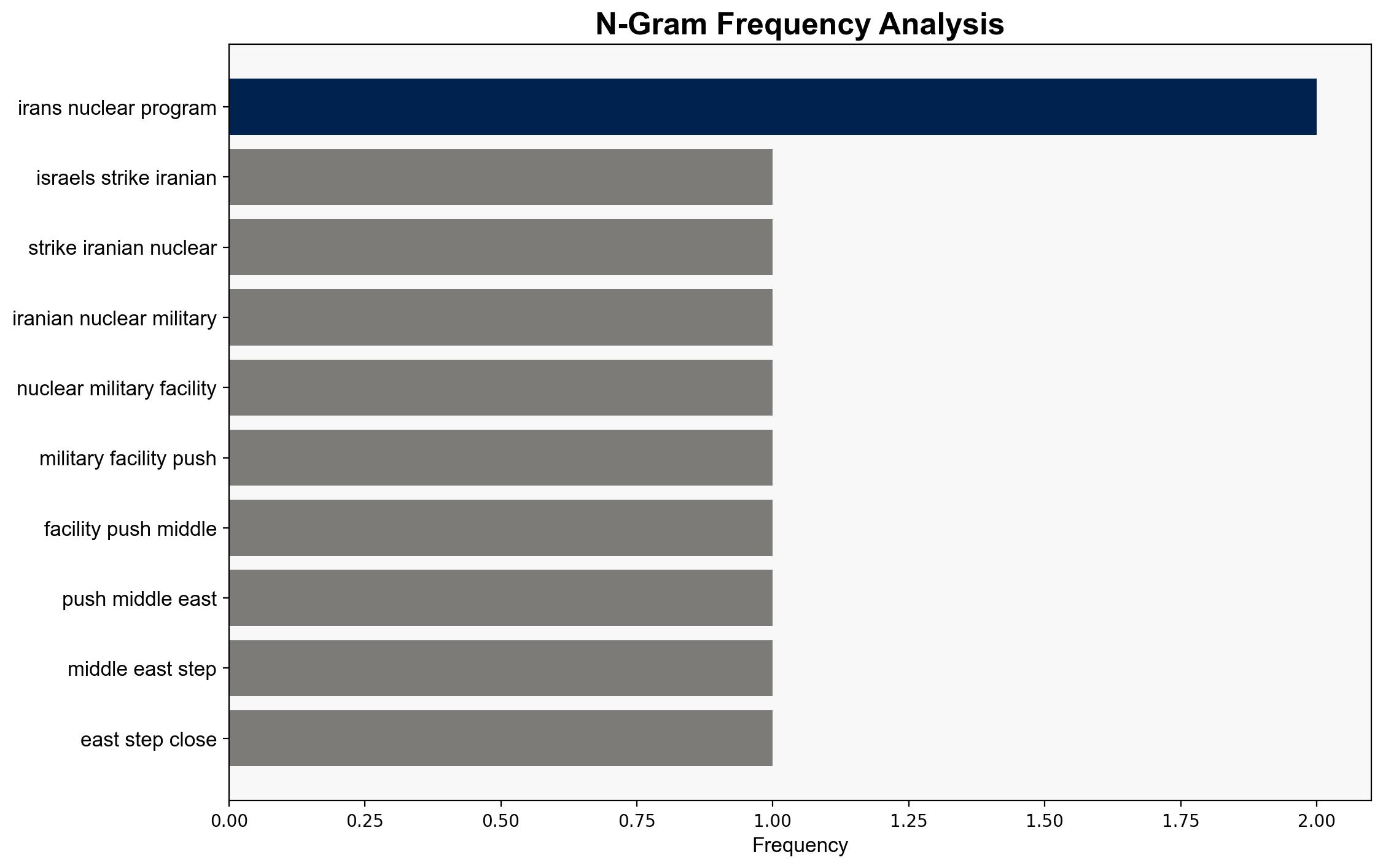What does Israels strike mean for US policy on Iran and prospects for a nuclear deal – The Conversation Africa
Published on: 2025-06-13
Intelligence Report: What does Israel’s strike mean for US policy on Iran and prospects for a nuclear deal – The Conversation Africa
1. BLUF (Bottom Line Up Front)
Israel’s recent strike on an Iranian nuclear facility significantly escalates regional tensions and complicates US diplomatic efforts with Iran. The attack underscores Israel’s strategic intent to prevent Iran from achieving nuclear breakout capability, potentially derailing ongoing negotiations for a nuclear deal. The US must navigate these developments carefully to maintain regional stability and pursue its non-proliferation objectives.
2. Detailed Analysis
The following structured analytic techniques have been applied to ensure methodological consistency:
ACH 2.0
Israel’s decision to strike is likely driven by intelligence indicating Iran’s progress towards weapon-grade uranium enrichment. This preemptive action aims to delay Iran’s nuclear capabilities and signal Israel’s red lines.
Indicators Development
Monitor Iranian military movements and communications for signs of retaliation. Increased propaganda or mobilization of proxy forces could indicate imminent threats.
Narrative Pattern Analysis
Iran may leverage the strike to bolster anti-Israel sentiment and unify regional allies, potentially increasing recruitment and support for proxy groups.
Network Influence Mapping
Assess the influence of key regional actors, including Iran’s proxies like Hezbollah and Hamas, to evaluate their potential responses and impacts on regional stability.
3. Implications and Strategic Risks
The strike risks triggering a broader conflict involving Iran’s proxy network, potentially destabilizing the Middle East. It may also strain US-Israel relations if perceived as undermining diplomatic efforts. Cyber retaliation by Iran against Israeli or US interests is a plausible threat, necessitating heightened cybersecurity measures.
4. Recommendations and Outlook
- Enhance intelligence sharing with regional allies to monitor potential retaliatory actions by Iran or its proxies.
- Strengthen cybersecurity defenses to mitigate potential Iranian cyberattacks.
- Engage in diplomatic efforts to de-escalate tensions, emphasizing the importance of continued negotiations with Iran.
- Scenario Projections:
- Best Case: Diplomatic efforts succeed in resuming nuclear deal negotiations, reducing regional tensions.
- Worst Case: Escalation leads to a broader military conflict involving multiple regional actors.
- Most Likely: Continued low-level skirmishes and cyber operations, with stalled diplomatic progress.
5. Key Individuals and Entities
Benjamin Netanyahu, Abbas Araghchi, Steve Witkoff
6. Thematic Tags
national security threats, cybersecurity, counter-terrorism, regional focus





